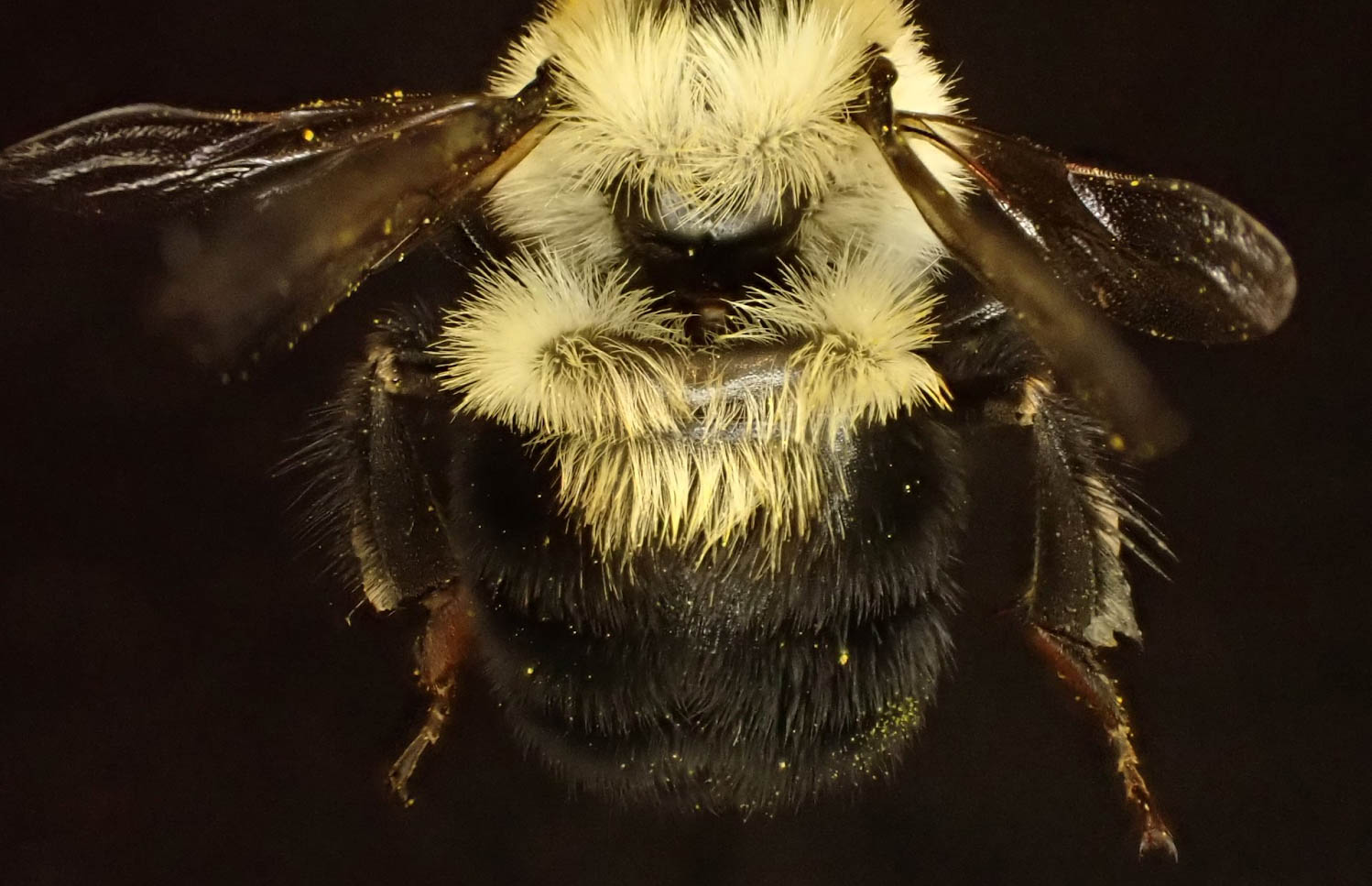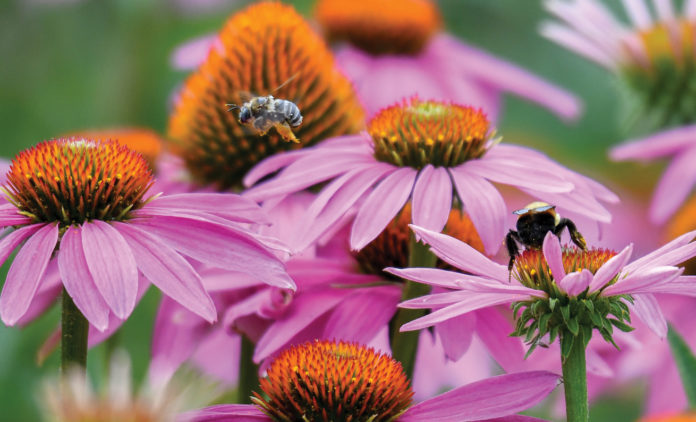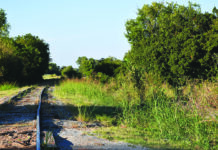
There is a buzz of excitement at the Oklahoma City Zoo and Botanical Garden with the recent discovery of a unique pollinator, the two-spotted bumblebee, Bombus bimaculatus, at the OKC Zoo. This species of bumblebee has not been found in Oklahoma since 1999.
Bee researcher, José Montalva, recognized the two-spotted bumblebee earlier this month on Zoo grounds. A graduate student at the University of Oklahoma and an instructor at East Central University, Montalva is conducting an ongoing survey at the OKC Zoo to study native bees that inhabit the park and record which floral resources they use, and what other environmental factors (biotic and abiotic) benefit bees. To date, Montalva has recorded almost 40 species of native bees at the Zoo. This study is made possible by a grant from the Kirkpatrick Foundation and the Department of Biological and Environmental Sciences at East Central University.
“What a thrill to learn that our funding dollars have led to the identification of a favorite creature vital to the future of Oklahoma ecology,” said Louisa McCune, Kirkpatrick Foundation’s executive director. “Bumblebees have needed research support like never before, so that makes it especially wonderful to see the Oklahoma City Zoo have such a breakthrough discovery.”
Oklahoma’s diverse bioregions provide habitat to a variety of bee species. At one time, the state was home to ten species of bumblebees including the two-spotted bumblebee but a study completed in 2015 by L. Figueroa and E. Bergey identified only four species of bumblebee thriving here.
“Finding this bumblebee back in Oklahoma after two decades is a great indication that the OKC Zoo provides vital habitat for native species,” said Rebecca Snyder, OKC Zoo’s director of conservation and science. “The Zoo is committed to helping increase pollinator populations through research and local conservation efforts aimed at creating more habitat. The Zoo also hopes to inspire people to care about the future of these important insects.”
Bumblebees are a social, charismatic species of bee that are found on almost every continent. The two-spotted bumblebee is fuzzy with a mostly yellow thorax with patches of black hairs at the base of its wings. They also have a distinct two-spotted yellow patch of hair on their second abdominal area. These valuable insects perform the critical role of pollinating the world’s flowering plants and crops and without them our ecosystems and economies would be in trouble. Worldwide bumblebee populations are experiencing dramatic population declines due to habitat fragmentation, pesticides and climate events.
The OKC Zoo currently maintains four on-site beehives. The bees contribute to the pollination process across the Zoo’s 100+ acres, keeping the numerous designated horticultural displays including the Zoo’s outdoor butterfly garden – the largest in Oklahoma – naturally vibrant and thriving. All four beehives are located in an undeveloped area south of the elephant habitat, away from walking paths and animal habitats accessible to guests.
The Oklahoma City Zoo is open daily at 8 a.m. and advance tickets are required for all guests and ZOOfriends members. Tickets can be purchased at http://www.okczoo.org/tickets and are limited each day to ensure adequate social distancing between guests. Some of the Zoo’s indoor habitats are still closed to minimize potential transmission of COVID-19. The Zoo is open daily from 8 a.m. to 5 p.m. now through Labor Day, Monday, September 7, 2020.
Located at the crossroads of I-44 and I-35, the OKC Zoo is a proud member of the Association of Zoos and Aquariums, the American Alliance of Museums, Oklahoma City’s Adventure District and an Adventure Road partner. Regular admission is $12 for adults and $9 for children ages 3-11 and seniors ages 65 and over. Children two and under are admitted free. Stay up-to-date with the Zoo on Facebook, Twitter and Instagram and by visiting Our Stories. Zoo fans can support the OKC Zoo by becoming Oklahoma Zoological Society members at ZOOfriends.org. To learn more about these and other happenings, call (405) 424-3344 or visit okczoo.org.














